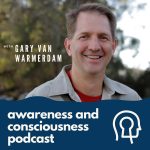
Most fears are not rational. When we apply some skilled common sense and awareness to them we can detach. However applying reasoning skills to overcoming fears is an uphill battle. That’s because the emotions we feel push us against accepting truthful reasoning. That’s because our fictional, or false beliefs often make us feel better emotionally. This doesn’t mean that our false beliefs make us happy. Rather they just make us feel a lesser degree of bad. Our effort to overcome fears is furthered hampered because part of our reasoning mind is more concerned with just having an answer than it is with knowing the truth. When you direct your attention and intent towards knowing the truth, the truth will set you free from your fear based beliefs.

